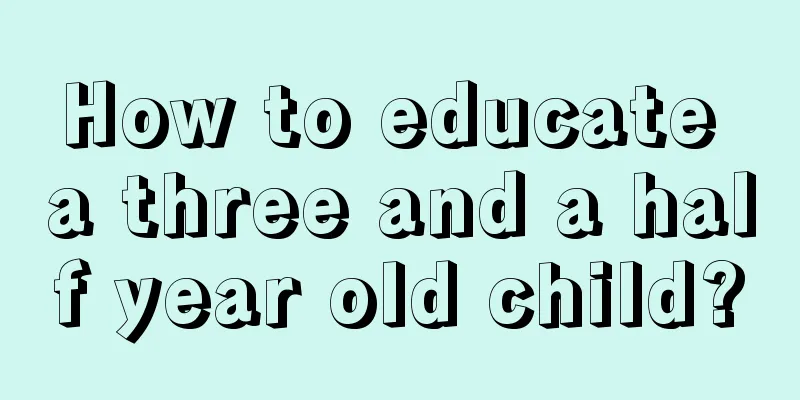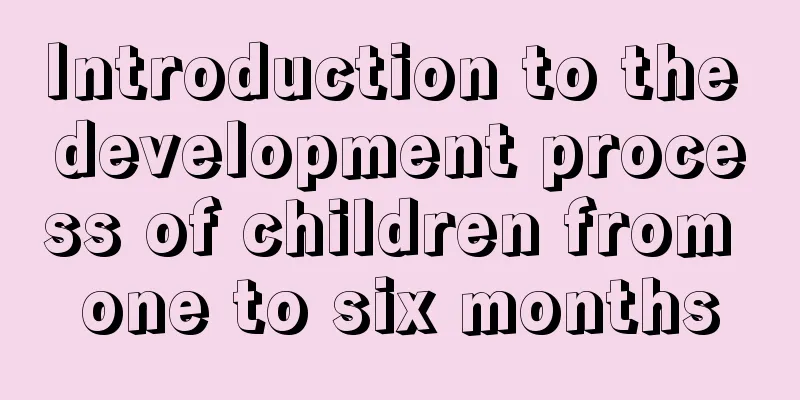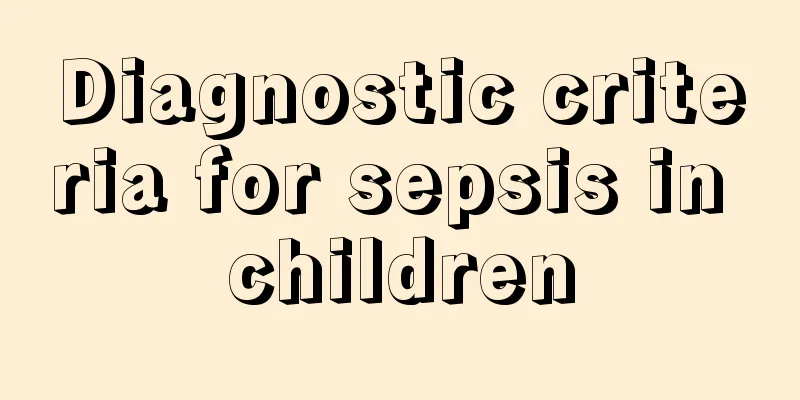How to educate a three and a half year old child?

|
The age of three and a half years old is the most critical period for a child's mental development. Therefore, parents must cultivate good habits in their children. In particular, some parents are often at a loss when their children cry, or they often spoil their children. Parents of three and a half years old must let their children develop good living habits. The following specifically introduces how to educate a three and a half year old child. Key points of early education for 3-year-old babies A 3-year-old baby can speak about 10 English words. Recite nursery rhymes, Tang poems, advertising slogans and simple stories. Can count to dozens or even 100, and can match numbers with Chinese characters. Be able to recognize 4-6 geometric shapes and cut a circle into 1/2 or 1/4. Put together a jigsaw puzzle with 4-8 pieces. Moreover, babies have good memories and can quote things that happened in the past. Parents can train their baby's memory more! 1. “You can tell a child’s future by looking at him when he’s three, and his old age by looking at him when he’s seven.” The baby’s interests, hobbies, and personality differences are already evident. 2. Answer the questions raised by your baby carefully and allow your baby to complete his intellectual development through observation, learning, questioning and understanding. 3. Tell your baby the country, city and region where you live to cultivate your baby’s concept of space. Tips for early childhood education for 3-year-old babies The baby lives with his parents and there seems to be no problem of lack of interaction or communication. But in fact, effective communication and interaction between babies and parents is not enough and is often even neglected. Parents should have serious conversations with their babies, correctly answer questions raised by their babies, give their babies clear and specific instructions, make appropriate and reasonable demands on their babies, and even do things wholeheartedly for their babies. These are all interactions and exchanges with their babies, which play a subtle role in the healthy growth of their babies. A baby's ability to interact and communicate is mostly developed through interacting and communicating with his parents. If parents ignore this point, it will be difficult for the baby to establish the ability to interact and communicate with people around him. 1. Before the age of 3, what a child needs is a stable person to establish an attachment relationship with, rather than to develop adaptability. Every mother is anxious or even terrified when she first becomes a mother. It's not just out of love for the child, but also out of a lack of understanding of our own human development. One's own life begins to be tied to another life. Before you figure out what's going on with yourself, you have to be responsible for another life. This is a kind of pressure. Some mothers see the dawn of growth in such darkness and see the direction they want to go. But some mothers begin to retreat and give up their motherly rights and responsibilities. I have seen many mothers who let the elderly or aunts take care of their children, and they have various reasons for shirking their responsibilities. The reasons are nothing more than economy, family conflicts, one's own health and so on. I respect these mothers' choices and understand how difficult it is. But when I face these children, I feel very sad. These three years are as important as gold. Buddhism talks about cause and effect. "Mortals fear the consequences, while Bodhisattvas fear the causes." When your child reaches a certain age, it will be very difficult to change the consequences. You need to plant more good causes to reap good consequences. A child under the age of 3 comes here from another world. He is unfamiliar with everything around him, including his own body, which he does not know how to use. He first needs to bind someone as his mirror, in which he sees the world and himself. If the binding relationship with the child is not established at this time, the child will look for someone to be bound to in interpersonal relationships when he grows up. Usually, the child will choose the mother as that object. This is why many mothers feel that they have lost themselves and are tied up and have no freedom before their children are 3 years old. But please believe that this process is necessary for children and will only be short. Enjoy this time, and if you give it enough, your child will be able to separate from you well. You and him get along with each other with love, joy and infinite curiosity, and this bond will be a warm period of time worth remembering in your life. 2. Everything you do before the age of 3 will not have immediate effects; it will be slowly released throughout your life. Some people may say after reading the previous article: "It's not that serious. Many children in our community are taken care of by nannies 24 hours a day. They are all sunny and healthy. They walk when they should walk and jump when they should jump. They have no memory before the age of 3 and don't learn anything. They are just growing up anyway, so it's okay." Well, I can't convince you with the answer that you can see with your naked eyes. As professional teachers, we can feel the child's condition by the aura, but this is difficult to express in words. Education is to teach how to be a good person first, and then to teach how to do things. But the former takes much longer than the latter. In this impetuous and quick-success-seeking era, we can’t wait, and we don’t know what it means to be human. So we turn to doing things that are easier to tell the difference between good and bad, and teach children some skills and let them show some talents. Our education has trained too many skilled experts and too many machines for striving for honor, but few people have found their own mission and used their inner strength to complete the mission that penetrates deep into their souls and bones. Before the age of 3 or 6, it is a time when results may not be seen immediately, but it is extremely important to cultivate inner strength and resilience. The primary caregiver must have firm beliefs and understanding of education in order to be able to stick to it. 3. Before the age of 3, what children need is physical sensory perception, not thinking. Children under the age of 3 learn through visualizing, and their developmental energy should be used in action rather than thinking. This rule is extremely important for education in the current impatient Chinese society. This kind of thinking is not the learning knowledge we usually understand. It is broader, including preaching big principles, big principles formed by abstract words that children cannot understand through their own experience. For example, “This thing contains additives, and eating it will be bad for your health.” What are additives? How can it be bad? These are things that the child cannot understand, and his first reaction after hearing this is to try it. What to do then? Adults make decisions through their actions. This is the sense of authority in the family. If the mother doesn’t buy it, the child naturally won’t get to eat it. Education that preaches moral principles, education that controls children with violence, and education that gives children unlimited freedom because they are afraid of trouble are all the same. It is lazy education, and a way for adults to vent their energy without any other means. I have seen too many children who lose the courage to try new things, and all they say are "This is dangerous", "You will catch a cold if you get in the water", "Good babies don't jump"... Faced with this, I can only sigh deeply. It is extremely important to allow children to explore freely before the age of 3, provided that they will not be seriously harmed. 4. Before the age of 3, what children need is your reliable love, not excessive material things. Walking on the street, I see children are dressed more and more beautifully, and the toys in their hands are becoming more and more trendy. But the voices I often hear in my ears are "I have this at home, you don't have it" and "I'll ask my mother to buy one, huh." Human desires are the easiest to expand and arise, and the faster they are satisfied, the easier it is to lose satisfaction. There is no end to satisfying desires through external material things. What we see is that the fuller and more natural the child's inner love is, the less he needs external things. The gifts given by mother can make up for one's inner guilt, but they cannot replace the missing companionship and maternal love. On the contrary, family education that can control material things, live attentively, and care for children with heart can best nourish the child's inner self. Reduce material giving and increase spiritual communication. 5. Before the age of 3, children rely on their own strong absorption and imitation abilities to learn, and we have nowhere to hide. There is a Chinese saying that children under the age of 3 have no memory. This makes many people think that before the age of 3, they only need to take good care of their children's health, and they don't understand other things about children. If this is true, the theory of evolution in nature is ridiculous. Three years of precious time have been wasted in vain. As higher animals, are humans really so stupid? In fact, the most magical gift God has bestowed on human beings in the past three years is super-strong sensory organs, which enable us to have the ability to absorb and imitate. Have you noticed that children around two years old do not learn to speak immediately, but learn through talking to themselves every night and repeatedly absorbing and imitating. Similarly, children understand and learn other things in this way. What’s even more amazing is that when you really want to take a break and push the child away, the child will stick to you even more, as if he understands your intention to push him away and is unwilling to leave. I often advise stay-at-home moms not to hire a nanny. Our bodies are becoming more and more lazy and lazy, and this state of idleness will affect the children and make them too self-centered. If mothers are often idle and have nothing to do, their children will call you "Mom! Mom!" to fill your inner boredom. When the mother is really busy, she can tell the child what she is doing and asks the child to wait for a while or come and do it with her. The child will often agree. This is because children's powerful senses can touch upon our inner selves, who we are, not what we do. If you don't like something about the person who is raising your child at home, don't let him raise your child, because sooner or later your child will develop that characteristic. If you don’t like a certain trait in yourself, then work hard to improve it based on accepting yourself, otherwise your children will not be able to avoid such reincarnation. |
<<: What are the signs that a three-year-old baby has a high IQ?
>>: What should I pay attention to when my baby goes to the doctor?
Recommend
What to do if your child has severe influenza
In the cold winter, many parents don’t want their...
What are the symptoms of precocious puberty in children?
Children's development cannot tolerate any mi...
What clothes should children wear?
As children, their skin is relatively delicate. M...
What should I do if my baby has a bacterial cold and cough?
Cold is one of the most common diseases and almos...
Treatment of sinusitis in children
If children's fever and colds are not treated...
What causes ulcers in children's mouths?
Children's mouth sores are often caused by ma...
The child is too timid to speak
The chance of a child being born timid is very sm...
Genital development of little boys
We all know that the development of children duri...
What is the reason for repeated coughing in children?
We are all familiar with the problem of bad breat...
What are the characteristics of infantile kyphosis?
Rickets is a systemic chronic nutritional disease...
What to do if your eyelids are puffy in the morning
Swollen eyelids in the morning is a common sympto...
How to care for neonatal dyshidrosis
Dyshidrosis is a very common skin disease that af...
What should babies eat to reduce internal heat?
Babies are in a period of rapid growth and develo...
What is the best age to correct a child's crooked front teeth?
If children have a poor diet, such as improper ch...
What is good to eat to promote children's brain development?
There are many developmental indicators for child...









